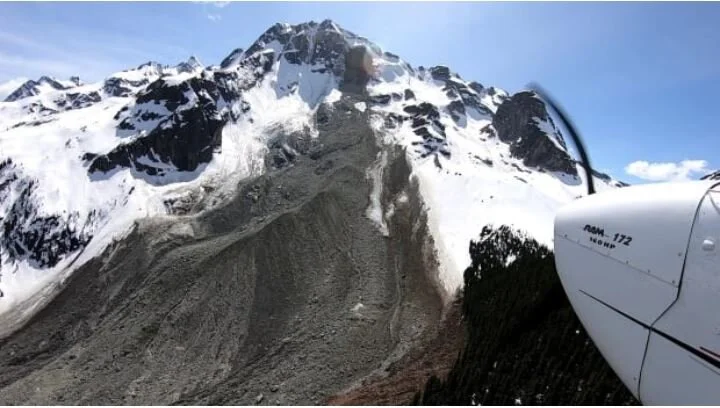In early December, while the property was unoccupied, Morgan’s real estate agent phoned him to advise that the house had been damaged as a result of a burst water connection to a second-floor toilet. Co-operators investigated the claim and denied coverage. The company’s position was that there was no insurance coverage for water damage after the property was vacant for more than five days, and there was no insurance at all for any loss if the dwelling was vacant for more than 30 consecutive days.
Drought, water overuse prompt Arizona to limit construction in some fast growing parts of Phoenix
Arizona will not approve new housing construction on the fast-growing edges of metro Phoenix that rely on groundwater thanks to years of overuse and a multi-decade drought that is sapping its water supply. Gov. Katie Hobbs recently announced the restrictions that could affect some of the fastest-growing suburbs of the nation’s fifth-largest city. Officials said developers could still build in the affected areas but would need to find alternative water sources to do so – such as surface or recycled water.
23 Saint Johners trapped laundry lint for a year to keep microplastics out of waterways
Taylor Kormann didn't know what to expect when she signed up to collect the goopy leftovers of her laundry cycles for a year as a part of a citizen science project for the Atlantic Coastal Action Program. "It was almost shocking to see what's coming out of the laundry," Kormann said. Kormann and 22 other Saint John residents spent 2022 collecting the wet lint from their washing machines to measure the microplastics their wash cycles were contributing to the city's water system.
Nearly 6 million litres of water from oilsands sediment pond released into Athabasca River
Suncor has reported six million litres of water that exceed sediment guidelines have been released into the Athabasca River from a pond at its Fort Hills oilsands mine. "Suncor took action to stop the discharge system and the release has been stopped," said a note from the Alberta Energy Regulator sent to area First Nations on Monday. The note said the water is from a pond used to settle suspended solids in surface water that runs in from various parts of the site. The water has drained from muskeg, rock and soil overlaying the bitumen, material being stored for reclamation and other areas of the site that are undisturbed by mining.
Warning issued for possible blue-green algae bloom at Cunard Lake Beach
Halifax Regional Municipality is warning people to avoid swimming at Cunard Lake Beach in Halifax due to a possible blue-green algae bloom. Blue-green algae, or cyanobacteria, are microscopic bacteria that live in surface water like lakes, ponds, rivers and streams that can be dangerous to people and pets. The organisms can multiply rapidly during the hot summer months and may release toxins into the water when the blooms die.
Lack of rainfall prompts low water situation in Upper Thames Valley watershed
As London enters its third heat warning of the year, the Upper Thames Valley watershed is facing a low water situation due to a lack of rainfall. The lack of rain has prompted a level one low water situation with the Upper Thames River Conservation Authority. Between June 15 and July 15, the watershed only received 17mm of rain — a mere 22 per cent of what is considered normal precipitation levels for that time of year.
Farmers need water to survive, P.E.I. Potato Board tells MLAs
The P.E.I. Potato Board made its pitch to Island MLAs on the importance of water to growing potatoes. The board appeared before a legislative standing committee looking for a sustainable irrigation strategy. Greg Donald, general manager of the P.E.I. Potato Board, says the industry is competitive and irrigation ensures producers can consistently meet customers' demands. He said irrigation also ensures potato producers can survive, especially as the province sees more drought conditions.
Taking water from stressed rivers during drought not allowed under new P.E.I. Water Act, says official
An incident last summer where water was drawn for irrigation from the Dunk River in central P.E.I. during a drought would not be allowed under the new Water Act, says the province's manager of water and air monitoring. Bruce Raymond made the comments while appearing before a standing committee of the legislature. Last summer, five farmers in the Kinkora-Bedeque region were allowed to use surface water in the Dunk in August despite that waterway being 5 centimetres below levels when water use should be cut off, according to current provincial regulations.
After drought last year, holding ponds may be best way forward, says expert
The P.E.I. Federation of Agriculture is asking the province to create an Island-wide irrigation strategy to help protect farmers at risk of losing crops or having crop damage due to drought. "Last summer is an example of a growing season where it's simply not sustainable for us to grow crops of any kind without water," said executive director Robert Godfrey.
P.E.I.'s new Water Act won't protect rivers if province still allows pumping during droughts, group says
The Coalition for the Protection of P.E.I. Water is concerned the Water Act might not improve things if the province goes against its own rules, as it did approving farmers' use of surface water for irrigation from the Dunk River during a drought last August. "What worries us is when there are demands for water, is the government going to bend and break their own rules?" said coalition chair Catherine O'Brien.
Earth's frozen 'water towers' threatened by warming, population growth, report says
Water frozen at the tops of mountains that helps sustain up to a quarter of the human population is under threat from climate change, population growth and lack of proper management, according to a new international study. The systems store and transport water through glaciers, snow packs, lakes and streams. They supply water to 1.9 billion people on Earth. A group of 32 international scientists — including one Canadian — published a paper in the journal Nature on Monday to highlight the importance and vulnerabilities of what they call Earth's 78 water towers.
'The Blob' is back: Scientists track blanket of warm water off West Coast
A large swath of warm water spanning thousands of kilometres from the Bering Sea to Mexico, nicknamed by scientists as “the Blob,” has returned to the West Coast, threatening marine life and fisheries. The Blob was christened in 2014, after a similar natural event that spanned two years devastated the salmon industry, damaged ecosystems and disrupted wildlife like whales, sea lions and crabs. “This is a massive pool… of warm water that’s in the Pacific, that is thousands of kilometres huge,” said senior climatologist for Environment Canada David Phillips on CTV’s Your Morning Tuesday. “This one stretches from the Bering Strait, the Bering Sea, right through the Gulf of Alaska, right through to California, British Columbia, and down to Mexico.”
West-coast water foragers turn off their taps—and go straight to the source
Once a month, Susan Chipman drives to a mountainside spring that burbles from the ground in North Vancouver and fills four 20-litre containers with water to use for drinking and cooking. When full, each container weighs 20 kg. Chipman lives on the top floor of a three-storey walk-up apartment in Vancouver. Her building has running water, of course, supplied and sourced by Metro Vancouver from protected reservoirs even higher up in the North Shore Mountains. But it lacks an elevator. So, she hauls her water jugs up the stairs, one in each hand for balance. “It’s a bit of a chore in the true sense of the word, but it’s worth it, I think.” Chipman says she was hooked from the first sip. She tasted it and thought, “OK, this is real water.”
6 west Saint John neighbourhoods to switch to east side water system
Less than two years after switching Saint John's west side to a new drinking water system, the city is now diverting many of those same neighbourhoods to a new water source. The areas affected include Saint John's lower west side, Milford, Randolph, Fundy Heights, Duck Cove and Sand Cove. They are to begin receiving surface water from the Loch Lomond Treatment plant on the city's east side by the end of the year. At the same time the city has cancelled its contract with the engineering firm that was instrumental in the creation of the west side well field water system and hired a law firm to pursue the company, BGC Engineering, for costs.















